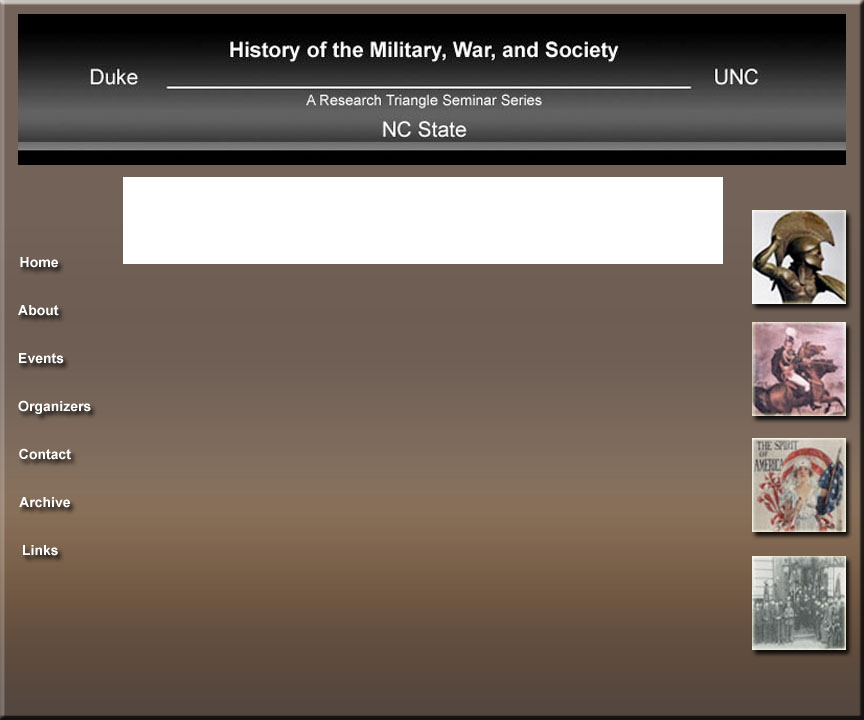
|
October 19, 2007 Jacqueline Whitt (University of North Carolina at Chapel Hill) For God and Country: Chaplains have served with military forces for millennia, and with American armed forces since the early colonial period, yet their roles in and interpretations of war have received scant attention from military historians and historians of American religion. However, chaplains serve as a primary location for understanding the complex intersections between American religious practice and the American military because they work and live at the intersections of these two institutions and culture. During the Vietnam War, these two cultures and institutions appeared to collide. American religious groups of all stripes publicly denounced the Vietnam War or the practice of it, and the armed services experienced military defeat and cultural turmoil. In the midst of intense protest and cultural upheaval, chaplains remained in the middle. This paper explores some of the intersections and conflicts between God and Country, as experienced by chaplains who served during US intervention in Vietnam. Jacqueline Whitt is a PhD candidate at the University of North Carolina at Chapel Hill where she is studying American military history with Dr. Richard H. Kohn. She graduated with honors from Hollins University (Roanoke, VA) in 2003 with degrees in History and International Studies. She received her Master's Degree in History from UNC-Chapel Hill in 2005. Her dissertation is titled A Crisis of Faith: Chaplains, Vietnam, and Religion in the American Military, and focuses on the intersections of military and religious culture in the United States. She has received a dissertation fellowship from the US Army Center for Military History for the 2007-2008 academic year. Her other research and teaching interests include American religious history, global history, and American foreign relations. |